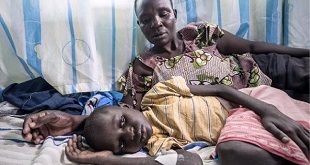
The Minister of Health Dr. Elioda Tumwesigye has pledged to support the scaling up of palliative care training in Uganda in order to meet the need of the country’s seriously ill, dying people and their families.
“Despite major achievements, especially the work of Hospice Africa Uganda over the last 23 years, a lot more needs to be done to meet all of the palliative care needs in the country,” Tumwesigye said at a graduation Friday of 29 students conferred with a Diploma in Clinical Palliative Care from the Institute of Hospice and Palliative Care in Africa (IHPCA).
According to a pres statement from Hospice Africa, Tumwesigye spoke of his own personal experience with cancer, having lost both parents to the disease. He revealed his mother was on the Hospice Africa Uganda programme in Mbarara and that a number of challenges need to be met in order to make palliative care accessible to all in need.
The minster said there is an “urgent need” to scale up training with the Diploma in Clinical Palliative Care Programme, which trains registered nurses and clinical officers to legally prescribe oral liquid morphine for pain relief.
Uganda is the first country in the world to make crucial legislative changes to allow specially trained nurses and clinical officers to prescribe oral liquid morphine, a cornerstone medication used in Palliative Care. This is to supplement the limited numbers of doctors, who in most countries are the only registered prescribers of such medications.
He committed to offer support to widen the reach of palliative care and to see if the government, through the Ministry of Health, will consider stepping in to offer scholarships to students to whom fees for palliative care courses are out of reach, or at least to subsidize student fees as is done in Public training Institutions.






He also said he would work to ensure that all the three academic programmes run at the IHPCA – the Bachelor of Science Degree, the Diploma in Palliative Care and the Diploma in Clinical Palliative Care – are included in the Ministry of Public Service scheme of service. This has been the most serious challenge faced by graduates from these courses because it means they have no channel for promotion or career progression in public service.
To date the IHPCA has trained 160 palliative care practitioners in prescribing liquid morphine. Whilst palliative care exists in 80% of the districts in Uganda the Minister said this is “a drop in the ocean” compared with the demand for palliative care in the country.
In attendance at today’s graduation was the founder of HAU, Professor Anne Merriman, senior IHPCA staff led by the Institute principal Prof. Stanley Acuda Wilson, members of the Board of HAU, members of the Governing Council of IHPCA, the Acting Chief Executive Director of HAU, Dr Eddie Mwebesa, graduands and their relatives.
The Minister said that graduation is a very important occasion not only for graduating students and their families, but also for the entire country as another group of highly trained specialists enter the pool of those trained in palliative care.
 The Independent Uganda: You get the Truth we Pay the Price
The Independent Uganda: You get the Truth we Pay the Price


